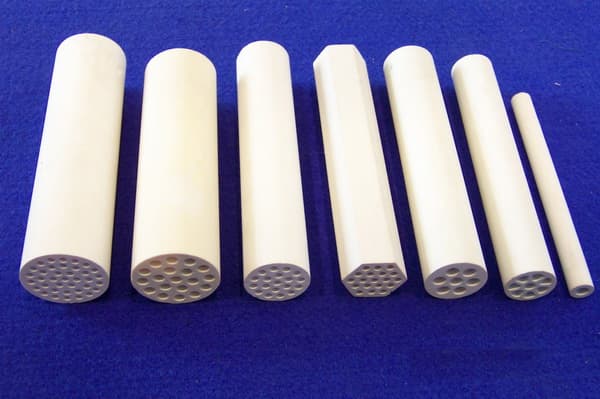Quality Pinnacle With Customized Non-Standard Filters and Microporous Folded Filters
In the realm of filtration technology, the pursuit of excellence drives the evolution of non-standard filters and microporous folded filters. Manufacturers specializing in these advanced filtration solutions are instrumental in meeting the diverse and specialized needs of industries ranging from pharmaceuticals and biotechnology to water treatment and aerospace. This article explores cutting-edge innovations, quality standards, and the role of key manufacturers in shaping the landscape of customized non-standard filters and microporous folded filters.
Customized Non-Standard Filters: Precision Beyond Standards
Tailoring Filtration to Unique Requirements:
Customized non-standard filters represent a paradigm shift in filtration technology, catering to industries with specific and unique requirements. Unlike quality customized non standard filter, these customized solutions are engineered to address precise filtration challenges, ensuring optimal performance in specialized applications. Industries such as chemical processing, oil and gas, and electronics benefit from the tailored precision of non-standard filters.
Varied Filtration Media:
One of the hallmarks of customized non-standard filters is the versatility in filtration media. Manufacturers in this niche offer a diverse range of materials, including specialized polymers, metal alloys, and composite materials. This flexibility allows for the selection of a filtration medium that aligns with the specific characteristics of the substances being filtered, ensuring maximum efficiency and longevity.
Advanced Filtration Techniques:
The manufacturing processes employed in producing customized non-standard filters often involve advanced techniques such as 3D printing, laser cutting, and precision molding. These methods allow for intricate designs and shapes that may not be achievable with standard filtration technologies. The result is a filter precisely tailored to the unique dimensions and specifications of the intended application.
Key Customized Non-Standard Filter Manufacturers:
Filtra Systems:
Filtra Systems, a leader in advanced filtration solutions, excels in providing customized non-standard filters. Their expertise spans various industries, offering tailored solutions for challenging filtration needs. Filtra Systems leverages cutting-edge technologies to design and manufacture filters that optimize efficiency and minimize maintenance requirements, demonstrating a commitment to delivering high-performance solutions.
Pall Corporation:
Pall Corporation stands at the forefront of filtration, separation, and purification technologies on a global scale. The company offers tailor-made filtration solutions and serves a broad spectrum of sectors, encompassing biotechnology, aerospace, and industrial manufacturing. Renowned for their accuracy and dependability, Pall’s specialized filters are recognized for their capability to fulfill the rigorous requirements across a variety of applications.
Microporous Folded Filters: Precision in Microfiltration
Microporous Technology Redefined:
Microporous folded filters represent a pinnacle in microfiltration technology, characterized by an intricate network of microscopic pores designed to capture particles with exceptional precision. These filters are employed in applications where fine particulate matter must be efficiently removed, such as in pharmaceutical manufacturing, food and beverage processing, and semiconductor production.
High Filtration Efficiency:
Microporous folded filters are engineered for high filtration efficiency, capturing particles at the sub-micron level. The folded structure provides a large surface area within a compact design, maximizing the filtration capacity and prolonging the filter’s lifespan. This level of precision is crucial in industries where product quality is paramount, such as in the production of sterile pharmaceuticals.
Absolute Filtration Ratings:
Manufacturers of microporous folded filters often provide filters with absolute filtration ratings, ensuring that particles of a specified size are reliably removed. This level of precision is essential in applications where the presence of even minute contaminants can compromise the integrity of the final product. Microporous folded filters offer a reliable barrier against contaminants, contributing to the production of high-quality goods.
Key Microporous Folded Filter Manufacturers:
Merck Millipore:
Merck Millipore, a renowned name in life sciences and technology, is a leading manufacturer of microporous folded filters. Their filters are designed to meet the stringent requirements of industries such as pharmaceuticals, biotechnology, and laboratory research. Merck Millipore’s commitment to quality and innovation positions them as a key player in the microporous filter market.
Sartorius Group:
Sartorius Group specializes in providing precision filtration solutions, including microporous folded filter manufacturers. With a focus on biopharmaceutical and laboratory applications, Sartorius Group’s filters are engineered to deliver consistent and reliable microfiltration performance. Their emphasis on quality and compliance with industry standards underscores their significance in the production of critical pharmaceutical and biotech products.
Quality Standards: Ensuring Excellence in Filtration
ISO Certification:
Quality standards are paramount in the filtration industry, ensuring that filters meet rigorous specifications and perform reliably in diverse applications. Manufacturers of customized non-standard filters and microporous folded filters often adhere to ISO (International Organization for Standardization) certification. ISO 9001 certification, in particular, signifies a commitment to quality management systems, assuring customers of consistent quality in design, production, and customer service.
Compliance with Industry Regulations:
In industries where filtration is critical to product quality and safety, compliance with industry-specific regulations is non-negotiable. Filtration manufacturers are required to meet standards set by regulatory bodies such as the FDA (Food and Drug Administration) in pharmaceuticals, NSF International in water treatment, and SEMI in semiconductor manufacturing. Adherence to these regulations ensures that filters maintain the integrity of the final product and comply with industry-specific requirements.
The Innovation Intersection: Non-Standard Filters & Microporous Folded Filters
Collaborative Solutions:
The intersection of customized non-standard filters and microporous folded filters presents opportunities for collaborative solutions. In applications where both precision and microfiltration are essential, manufacturers are developing integrated filtration systems that leverage the strengths of both technologies. This collaborative approach enhances overall filtration efficiency, providing tailored solutions for industries with multifaceted filtration needs.
Sustainable Filtration Practices:
An emerging trend in the filtration industry is the integration of sustainable practices. Manufacturers are exploring eco-friendly materials for filter construction, designing filters with recyclability in mind, and optimizing manufacturing processes to minimize environmental impact. This commitment to sustainability aligns with global efforts to promote green technologies and reduce the environmental footprint of industrial processes.
Conclusion:
In conclusion, the evolution of filtration technology is exemplified by the advancements made in customized non-standard filters and microporous folded filters. The commitment of manufacturers to precision, innovation, and quality standards underscores their pivotal role in diverse industries. Whether it’s Filtra-Systems and Pall Corporation excelling in customized non-standard filters or Merck Millipore and Sartorius Group leading in microporous folded filters, these manufacturers are shaping the future of filtration technology.
Click here to read more





